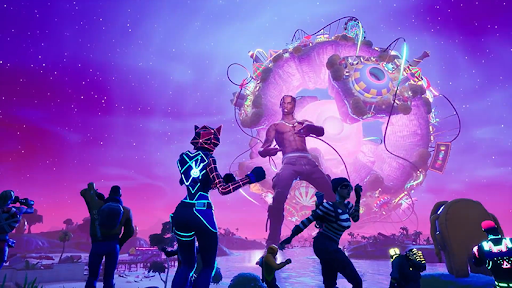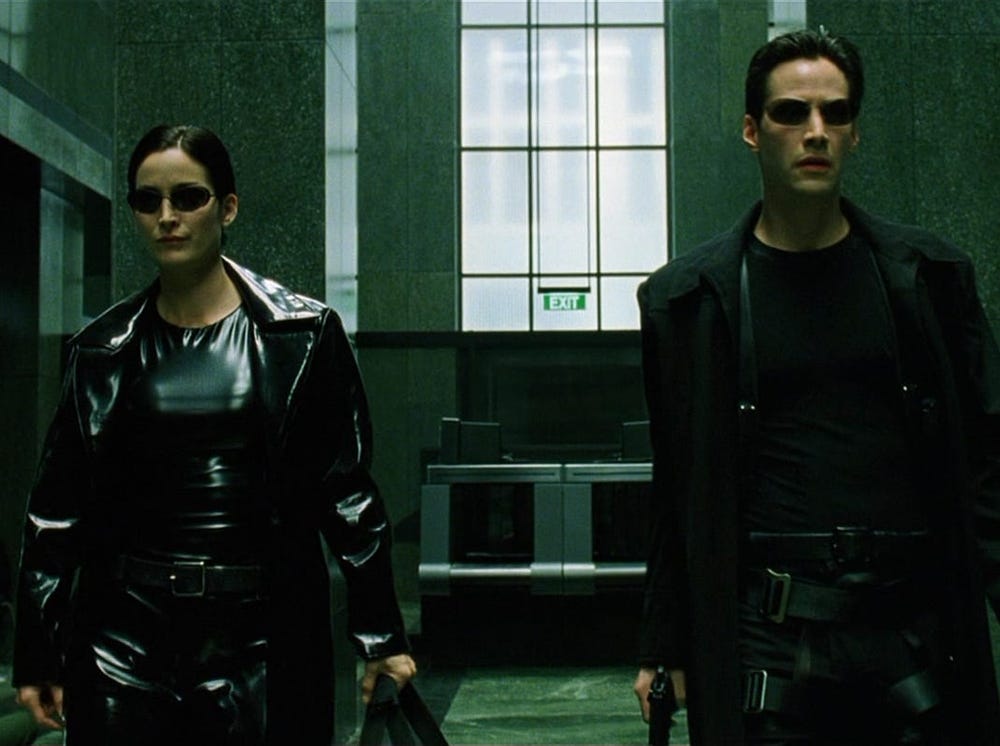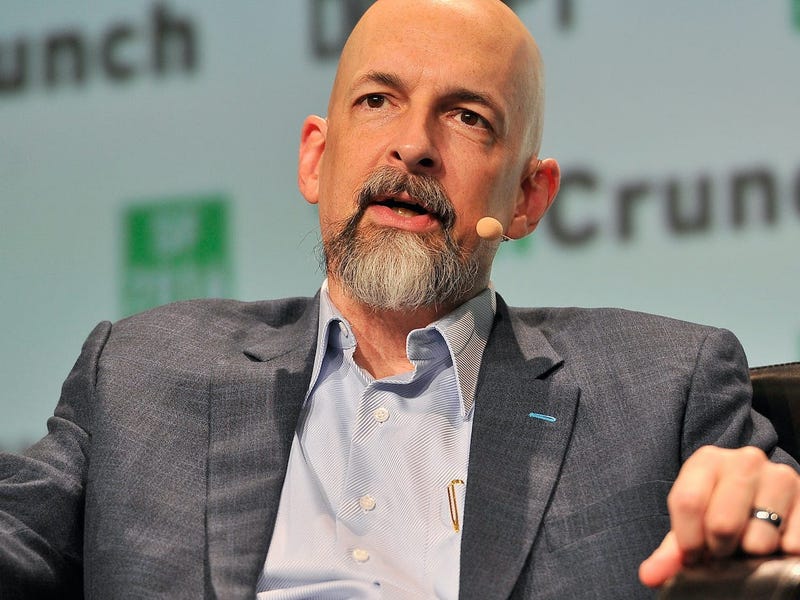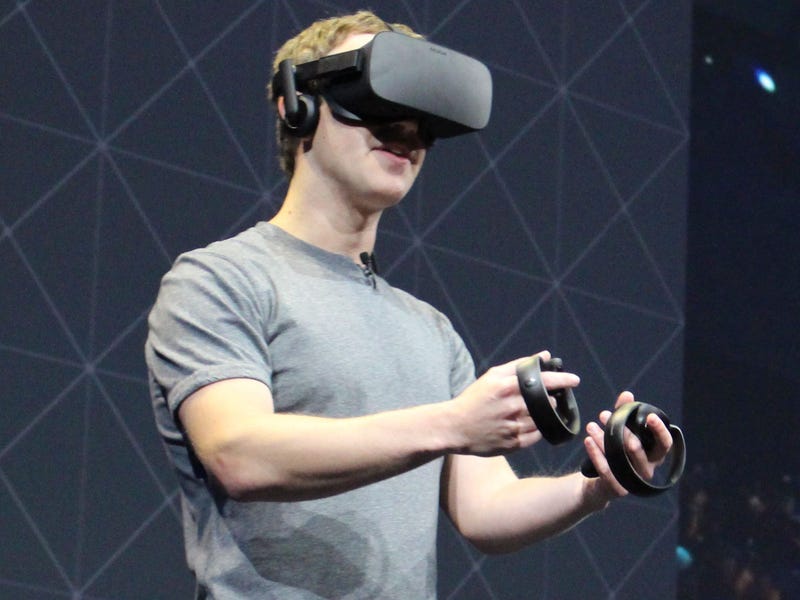
Katie Canales

Mark Zuckerberg thrust a futuristic concept into the limelight earlier this summer when he announced Facebook will become known as a "metaverse company." Its first foray, he said Thursday, will be virtual reality workspaces.
The term has taken over public discourse since then — but mainly because no one knows what it means, even the inventor of the term.
You may also be interested in
- How to watch porn videos in VR virtual reality ?
- How to learn new languages and skills in virtual reality?
- Books you must read about virtual reality
- Virtual Reality Is The Future Technology book
- A Beginner's Guide to Virtual Reality 2021
The idea of a "metaverse" has existed in the gaming and science fiction realms for a while. But its introduction to the mainstream means the masses could probably use a rundown.
Here's what you need to know.
'Metaverse' first materialized in a 1992 book called 'Snow Crash'

Steve Jennings/Getty Images for TechCrunch
Author Neal Stephenson told Vanity Fair in 2017 that he was just "making shit up" when he wrote about what he called the metaverse in his science-fiction tale. But it and other elements he described have been taken to heart by many in the tech world.
The creator of Google Earth cited Stephenson's vision as inspiration for his design. And virtual-reality pioneer Magic Leap made Stephenson its Chief Futurist in 2014.
So... what exactly is the metaverse?

The metaverse is basically what will come after the internet.It's a virtual space where humans — tethered to the physical world — can operate using virtual and augmented reality-powered avatars and exist in both places, losing touch on what's real and what's not.
Some pop culture examples of metaverses include "Ready Player One" and "The Matrix."The metaverse already existed in some forms within the gaming world, like in "Animal Crossing" and "Roblox." "Fortnite" creator Epic Games' CEO Tim Sweeney said in April after receiving a new funding round that it's grateful to investors "who support our visions for Epic and the Metaverse" and its work with "connected social experiences."It also has associations with blockchain. The decentralized, digital asset could theoretically be used to pay for goods and services in the virtual universe.
Why is it bubbling to the surface now?

As Wired notes, many of the literary and cinematic depictions of metaverses include a quasi-apocalyptic, dystopian, or at least unlivable, real world. The metaverse, therefore, would provide a much-desired escape from whatever is so undesirable about reality.
During the pandemic, many of us have been driven online, existing more so on digital platforms and away from physical human interaction. With a pandemic, a divisive presidential election, and a world of uncertainty surrounding us, the need for an escape doesn't sound so unattractive.
Why is Zuck talking about it?

Glenn Chapmann/AFP via Getty Images
Zuckerberg wants to transition to a metaverse company. Its virtual reality arm Oculus and the VR network Facebook Horizons could aid in that mission. Though the metaverse wouldn't belong to just one company — it would be a collaborative space with multiple players, like how the internet already operates.Microsoft CEO Satya Nadella said recently that he wants to play a role in an "enterprise metaverse."But there is concern that since the metaverse concept is somewhat vague, tech companies are employing it as a marketing term, an umbrella word to signal promise for new product developments — a happy distraction from all that looming antitrust scrutiny.
Invite Friends & You Both Get Up To US$100
Introduce your friends to the easiest way to get things done
How to make Up To US$100 in less than a minute on fiverr?
- Oculus Quest 2 accessories
- Best VR\AR suits for purchase
- Squid Games are now playing in virtual reality
- How Project Yemen used VR to provide vital surgical training
- Vive Flow is a Consumer VR Standalone with a Strong Focus on Hand-tracking, according to a new report.
- For 2021, the Best Virtual reality Headsets
- 10 Accessories to Improve Your Flight Simulator in VR
- Books you must read about virtual reality
- Fresenius launches VR-based training for home dialysis patients
- Apple supplier launches non-invasive glucose monitor & health sensor tech
- VR aid the improvement of balance in the elderly.
- Microsoft is working on HoloLens 3, the consumer version
- How to use virtual reality glasses for dental care?
- VR technologies for restoration, movement capabilities, and function
- Virtual Reality Applications in Medicine
- Benefits of Virtual Reality for Stroke Recovery?
- Accenture acquires 60,000 Oculus Quest 2 headsets for training
- Treatment of sleep disorders by virtual reality
- Caring for Autistic Children by Virtual Reality
- VR therapy helps to deal with pain
Subscribe now to our YouTube channel
Subscribe now to our Facebook Page
Subscribe now to our twitter page
Love the realm of virtual reality and augmented reality? Are you over 18? Want to make money right now from your PC or smartphone from virtual and augmented reality? Sign up and you will receive an offer from us you can not refuse.



